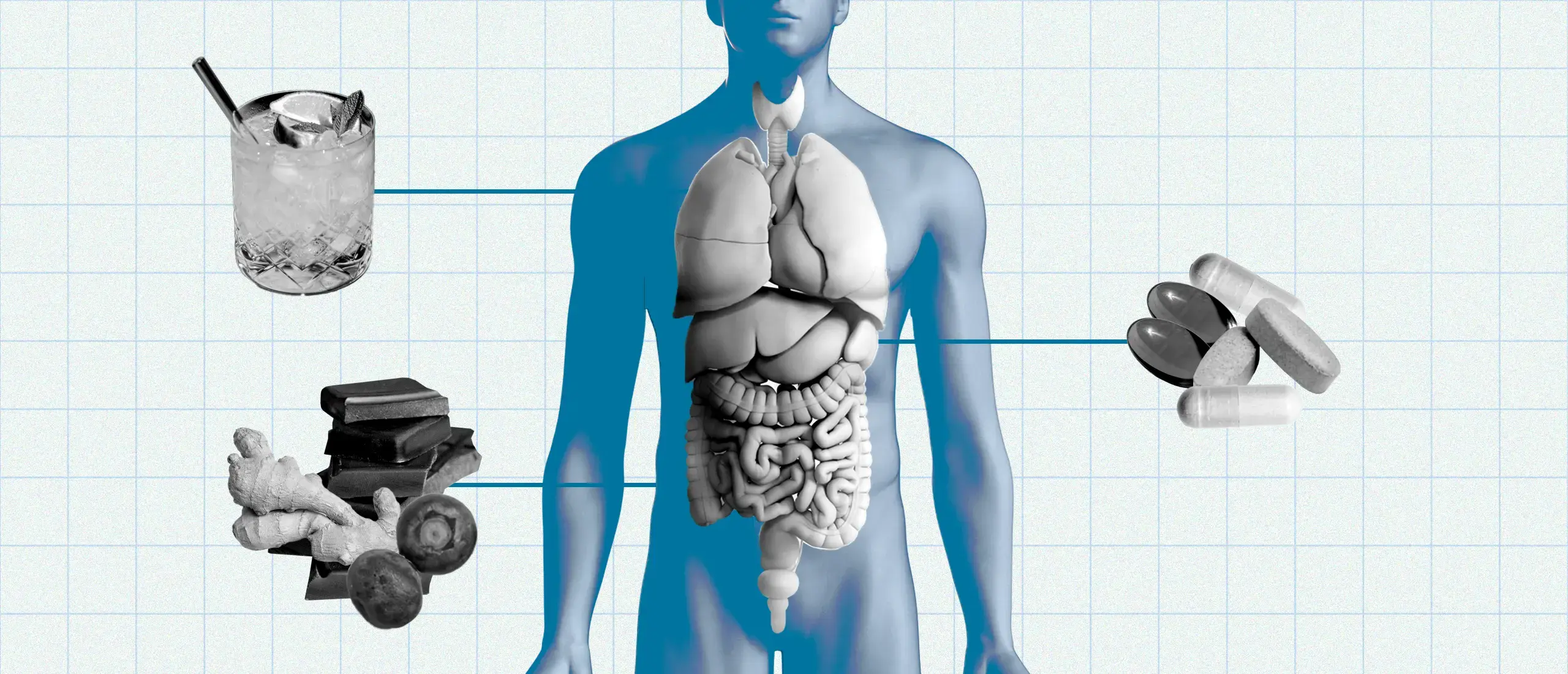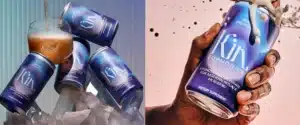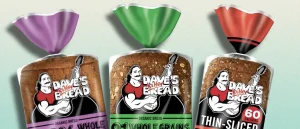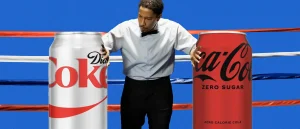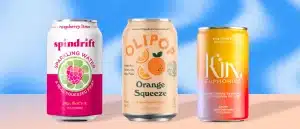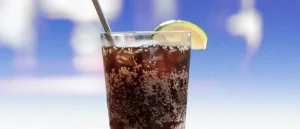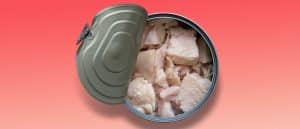The New Way to Stop Drinking in 2024
- By Sydney Bueckert, NASM C.P.T., C.E.S., F.N.S., G.P.T.S.
- January 6, 2024
Sobriety is practically trendy at this point. Vice called 2022 the year alcohol “lost its cool,” and in 2023, 34 percent of Americans aimed to drink less alcohol. And online search interest for non-alcoholic drinks like “zero-alcohol beer” has been steadily increasing since the pandemic, indicating that something is shifting.
If you’re thinking about cutting back, Dr. Brooke Scheller, DCN, CNS, the author of How to Eat to Change How You Drink is proposing a new way to think about sobriety that involves tweaking your diet and supplement stack to help you feel better while drinking less.
About the Expert:
Brooke Scheller, DCN, CNS is the author of How to Eat to Change How You Drink. She’s a Doctor on Clinical Nutrition, Certified Nutrition Specialist, and founder of Functional Sobriety, a nutrition-based program for alcohol reduction.
What is Functional Sobriety?
Functional sobriety is Scheller’s approach to alcohol reduction or elimination that combines principles of functional medicine and nutrition to help you drink less. “It’s looking at alcohol in the body through a root cause lens—how it affects your gut, brain, mood, hormones, cortisol, and blood sugar,” she says.
“Even if you only drink once a week, alcohol has a negative effect on nutrition status, the gut microbiome, and hormones,” Scheller explains. Nutrient deficiencies, gut dysbiosis, and hormone imbalances can lead to cravings, irritability, brain fog, and fatigue, all of which make getting and staying sober harder.
“These symptoms aren’t a sign that you should go back to drinking alcohol, it means you need support to restore vitamin levels, combat stress, repair your gut, and clear up hormonal imbalances,” Scheller explains. Functional sobriety aims to do just that, by countering the negative effects of alcohol with nutrition, supplements, and lifestyle changes.
How and What to Eat for Sobriety Support
When it comes to supporting a sobriety journey with food, Scheller sticks to three golden rules:
Eat every three to four hours
“It’s the end of the work day struggle, when happy hour hits, that alcohol cravings typically strike,” says Scheller. Next time this happens, she recommends asking yourself ‘when was the last time I ate and what was it?’ More often than not, a drop in blood sugar can bring on the urge to drink.
“Being able to identify a low blood sugar craving and combat it with a snack can help clear up cravings,” she explains. Eat a balanced snack every three to four hours, and you’re less likely to get cravings at all.
Eat protein at every snack and meal
“Blood sugar cravings peak after drinking alcohol, which is why people with a heavy drinking history have a tendency toward hypoglycemia (or high blood sugar),” explains Scheller. Chronic blood glucose variability (high highs and low lows) can predispose you to diabetes (1).
To keep blood sugar stable, Scheller recommends eating protein at every snack and meal to reduce post-meal glucose spikes (2). “Aim for at least 15 grams per snack, and 25 to 30 grams per meal,” she adds.
Eat functional foods
Specific functional foods can give support to different areas that get hit hard by alcohol:
Foods that balance blood sugar
In addition to eating every few hours and eating balanced snacks and meals, Scheller recommends foods rich in anthocyanins like cherries, berries, and red cabbage, and cinnamon to balance blood sugar and ward off alcohol cravings (3, 4).
Foods that improve gut health
Prebiotic fiber like artichokes and asparagus, and probiotics which can be found in fermented foods like sauerkraut and kimchi, fresh pickles, and fermented dairy like yogurt and kefir can help heal your gut from the damage caused by booze (5, 6, 7).
Foods that boost detoxification
Cruciferous veggies like cauliflower and Brussels sprouts, ginger, and turmeric may improve liver and gut function, your body systems responsible for getting rid of waste including alcohol toxins (8).
Foods that support brain health
Drinking takes a hit to brain health, decreasing cognitive function and gray and white matter in the brain (9). To boost brain function, Scheller is a big fan of beets which increase oxygenation and blood flow to the brain, as well as omega-3’s which are found in foods like wild-caught fish (10, 11).
Supplements for Sobriety Support
While food can cover most nutrient deficiencies, supplements can ensure you’re hitting the correct dose to fill in the gaps often caused by drinking from the jump, says Scheller.
In her book, Scheller lists 18 supplements to consider including micronutrients that might be depleted from alcohol consumption like B vitamins, magnesium, and zinc, as well as things like L-glutamine which can help nip alcohol cravings in the bud (12, 13, 14, 15).
But if she could only pick two supplements, here’s where Scheller would start:
B vitamin complex
You might get an energy and mood boost from quitting alcohol, but if you’re low in B vitamins they might not improve as quickly or completely as you’d expect.
“B vitamins are particularly vulnerable to depletion from alcohol, especially vitamin B12, B1, and folate,” says Scheller. B vitamins are important for things like energy and mood—things you might expect to get back when you give up alcohol, but might not if you’re low in B vitamins, she adds. Get a methylated B vitamin complex for optimal absorption.
L-Glutamine
L-glutamine is an amino acid known to balance blood sugar, support a healthy gut lining, energy, and immune system function (16). And while studies are limited, promising anecdotal clinical evidence suggests amino acid supplementation (including L-glutamine) may help to reduce cravings by regulating neurotransmitters, per Scheller (15).
“L-glutamine can help minimize alcohol and sugar cravings and mitigate stress while promoting relaxation,” says Scheller.
She recommends 500 to 1,000mg, split between the morning and evening for ongoing blood sugar regulation for the first three to six months of cutting back on alcohol.
Other Ways to Support Sobriety
“If you take away alcohol, but you’re not supporting stress, that again is an indicator that there’s something missing,” says Scheller. It’s not uncommon to use alcohol to wash stress away, without it you’ll need to find ways to manage it. Reinforce lifestyle habits that can help improve health and squash stress in one hit. Aim to get regular exercise, improve sleep quality, and tap into healthy relationships.
“Community is really important. It’s really hard to change your drinking when you’re still hanging out with people who encourage you to drink,” says Scheller. You don’t need to completely scratch your social circle or ditch your friends, but identify at least one friend who’s interested in sobriety, a non-drinker, or someone who enjoys doing things other than drinking, and start spending more time with them. “It’s going to make it a heck of a lot easier to make a change and stick to your goals,” says Scheller.
References
1. Zhou, Z. et al. (2020). Glycemic Variability: Adverse Clinical Outcomes and How to Improve It?
2. Nesti, L. et al. (2019). Impact of Nutrient Type and Sequence on Glucose Tolerance: Physiological Insights and Therapeutic Implications.
3. Gowd, V. et al. (2017). Anthocyanins as Promising Molecules and Dietary Bioactive Components Against Diabetes—A Review of Recent Advances.
4. Kizilaslan, N. et al. (2019). The Effect of Different Amounts of Cinnamon Consumption on Blood Glucose in Healthy Individuals.
5. Leeuwendaal, N. et al. (2022). Fermented Foods, Health, and the Gut Microbiome.
6. Carlson, J. et al. (2018). Health Effects and Sources of Prebiotic Dietary Fiber.
7. Wang, X. et al. (2021). Probiotics Regulate Gut Microbiota: An Effective Method to Improve Immunity.
8. Hodges, R. et al. (2015). Modulation of Metabolic Detoxification Pathways Using Foods and Food-Derived Components: A Scientific Review with Clinical Application.
9. Daviet, R. et al. (2022). Associations Between Alcohol Consumption and Gray and White Matter Volumes in the UK Biobank.
10. Syzmanski, J. et al. (2022). The Role of Beetroot Ingredients in the Prevention of Alzheimer’s Disease.
11. Dighriri, I. et al. (2022). Effects of Omega-3 Polyunsaturated Fatty Acids on Brain Functions: A Systematic Review.
12. Sandoval, C et al. (2022). Vitamin Supplements as a Nutritional Strategy Against Chronic Alcohol Consumption? An Updated Review.
13. Vatsalya, V. et al. (2020). Lower Serum Magnesium Concentrations are Associated With Specific Heavy Drinking Markers, Pro-Inflammatory Response and Early-Stage Alcohol-Associated Liver Injury.
13. Vatsalya, V. et al. (2020). Lower Serum Magnesium Concentrations are Associated With Specific Heavy Drinking Markers, Pro-Inflammatory Response and Early-Stage Alcohol-Associated Liver Injury.
14. Skalny, A. et al. (2018). Zinc Deficiency as a Mediator of Toxic Effects of Alcohol Abuse.
15. Jukic, T. et al. (2011). The Use of a Food Supplementation With D-Phenylalanine, L-GLutamine, and L-5-Hydroxytriptophan in the Alleviation of Alcohol Withdrawal Symptoms.
16. Cruzat, V. et al. (2018). Glutamine: Metabolism and Immune Function, Supplementation, and CLinical Translation.



